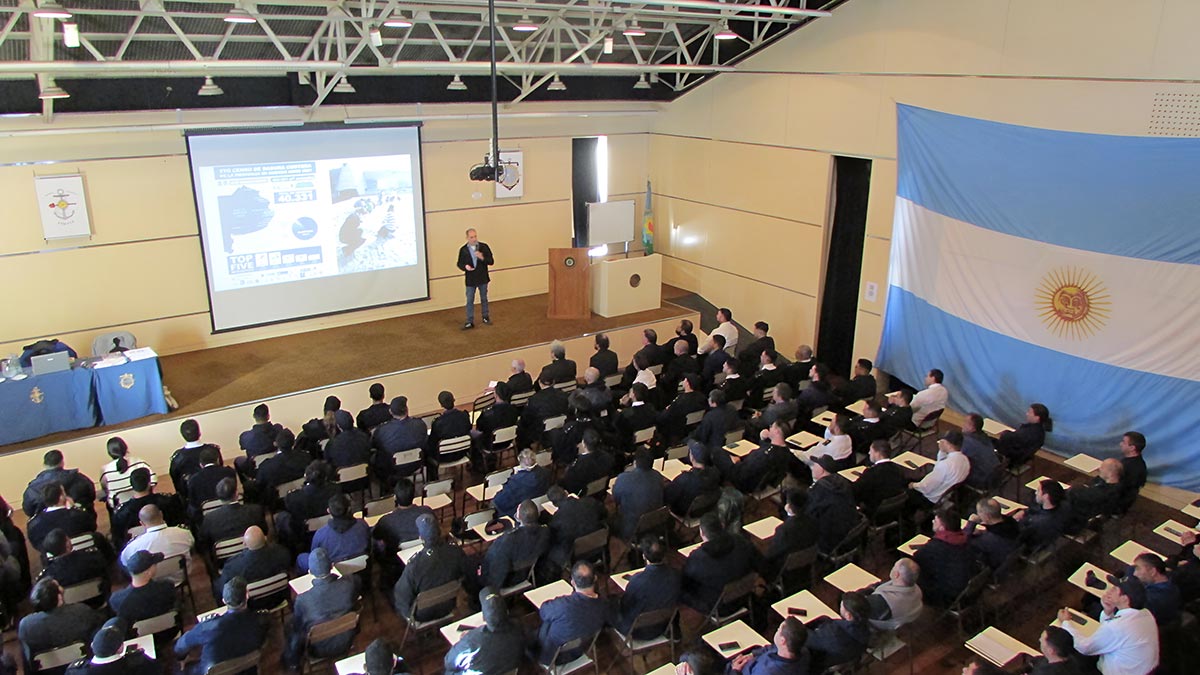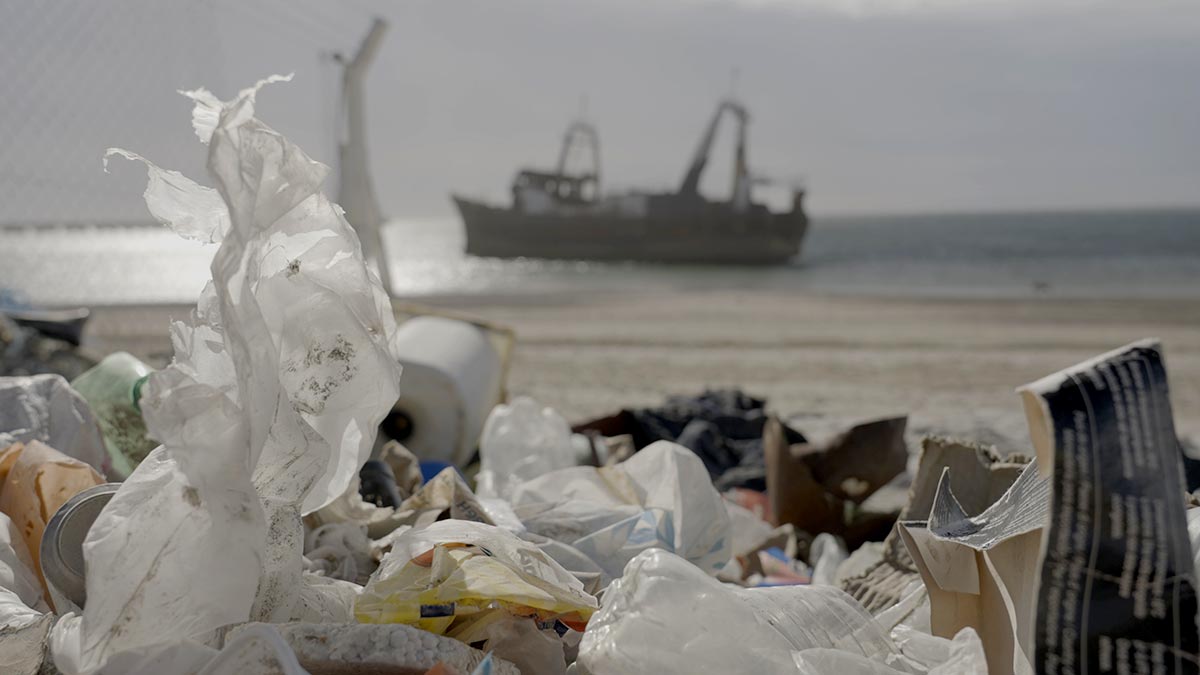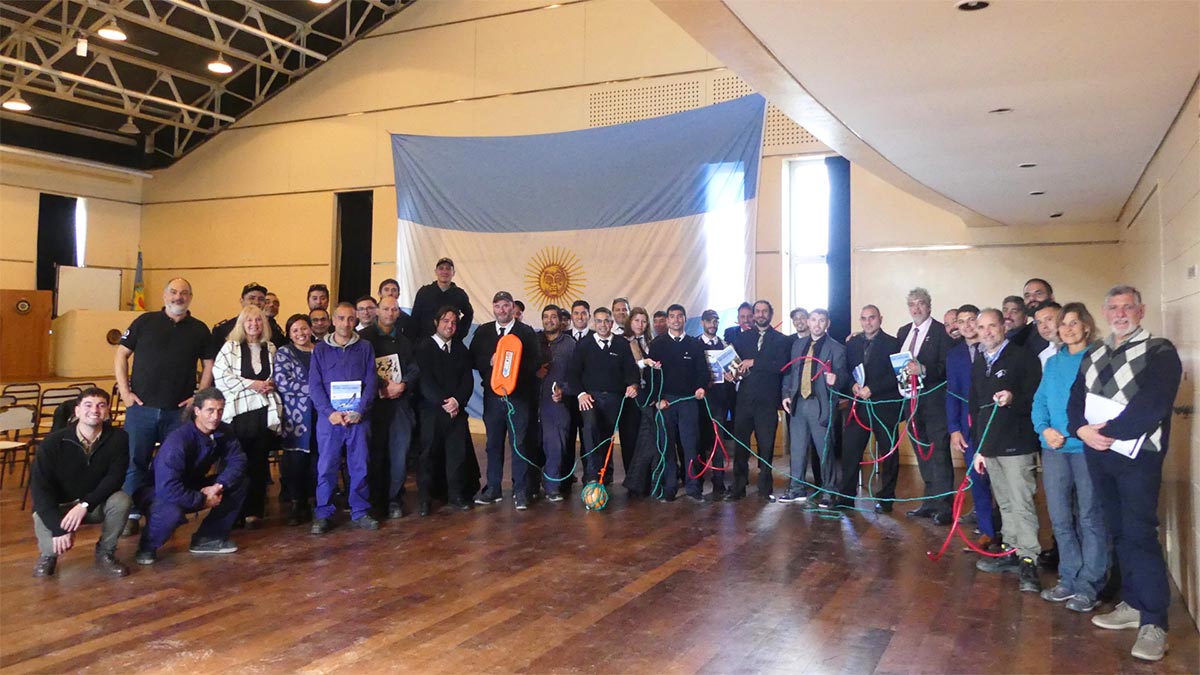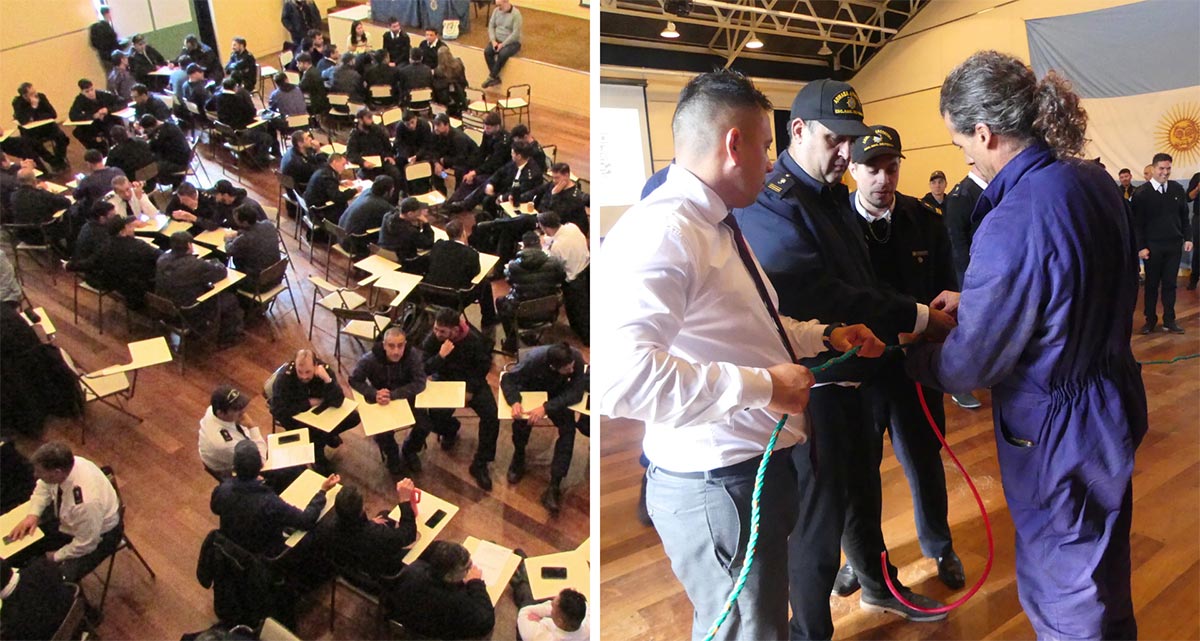
On May 7 and 8, 150 men and women, including captains and trainee officers, both from the deck and engine areas, participated in two workshops on plastic pollution from fishing activities and seabird bycatch. These meetings are coordinated by the Forum for the Conservation of the Patagonian Sea and Areas of Influence within the framework of the MaRes Project, which addresses these issues through the components “Reduction of plastic waste from fishing and strengthening of the circular economy” and “Mitigation of bycatch and good fishing practices”.
The meetings were facilitated by the Whale Conservation Institute (ICB), Fundación Vida Silvestre (FVS), Aves Argentinas (AA) and Fundación Cambio Democrático (FCD), member organizations of the Forum.
ARTICULATION WITH THE NATIONAL FISHING SCHOOL: AN INTEGRAL VISION FOR THE DEVELOPMENT OF BETTER FISHING PRACTICES.
Contributing to training within the scope of the National Fishing School acquires significant importance given the role played by this institution in the preparation of future professionals who will manage fishing vessels. Thanks to this alliance and for the second consecutive year, more than 300 future officers have participated in these workshops (See what happened in the 1st edition).
The topics addressed are intended to promote a comprehensive view of the marine environment and contribute to strengthening the contents of the Seminar on the Ecosystem Approach to Fisheries offered by the Fisheries Education and Training Observatory of the Secretariat of Extension, Liaison and Research of the National Fishing School.
Rocío Leone, who directs the observatory, pointed out that: “The purpose of addressing these topics is that during the training process of future Officers (Chief Engineers and Captains), they receive the updated academic and technical contents to fulfill their professional role in a safe way, taking care of the resources and the environment”.
This approach requires a collective and collaborative effort between individuals and institutions. Starting this process with the training of those who will play key roles in the vessels is a fundamental step in finding lasting and participatory solutions.

THE CHALLENGES: REDUCING PLASTIC AT SEA AND MITIGATING BYCATCH
The workshops were organized in two meetings. The first one was attended by 140 men and women trainees from the deck and engine areas, and addressed one of the most serious problems facing marine ecosystems today: plastic from fishing activities.
The contents provided information on the impacts of plastics on biodiversity, strategies to prevent the entry of plastics into the sea and how to implement them effectively. In addition, the importance of circular economy strategies as tools to extend the useful life and revalue plastic waste used in fishing activities was highlighted.
The second workshop focused on seabird bycatch. Fifty men and women from the 2nd year of training as fishing pilots, small-scale fishing skippers and fishing captains participated in this workshop.
Bycatch represents a threat mainly to albatross and petrel populations. The causes and impacts on seabird populations were addressed, promoting the use of bird-scaring lines (BSLs), a measure that has proven to reduce by 90% the mortality due to collisions with fishing gear. (See what happened in the previous edition).

Specialists in each topic were invited to discuss the issues addressed in greater depth. In addition, dialogue spaces were organized where participants exchanged experiences on topics of common interest, such as the activities that generate the greatest losses of plastic objects and the identification of possible solutions.
The role of ports was identified as a key link for the proper reception and management of waste. In relation to the workshop on bycatch mitigation measures, a practical activity was carried out where participants built a bird-scaring line (BSL) and shared their perspectives on the obstacles and possibilities for its implementation.

In addition to contributing to the training of attendees, these activities aim to provide a participatory platform to analyze the issues that threaten marine biodiversity, and identify ways to effectively implement mitigation measures to consolidate best practices on board and in port to maintain the integrity of the biodiversity of the ecosystems of the Argentine Sea.


